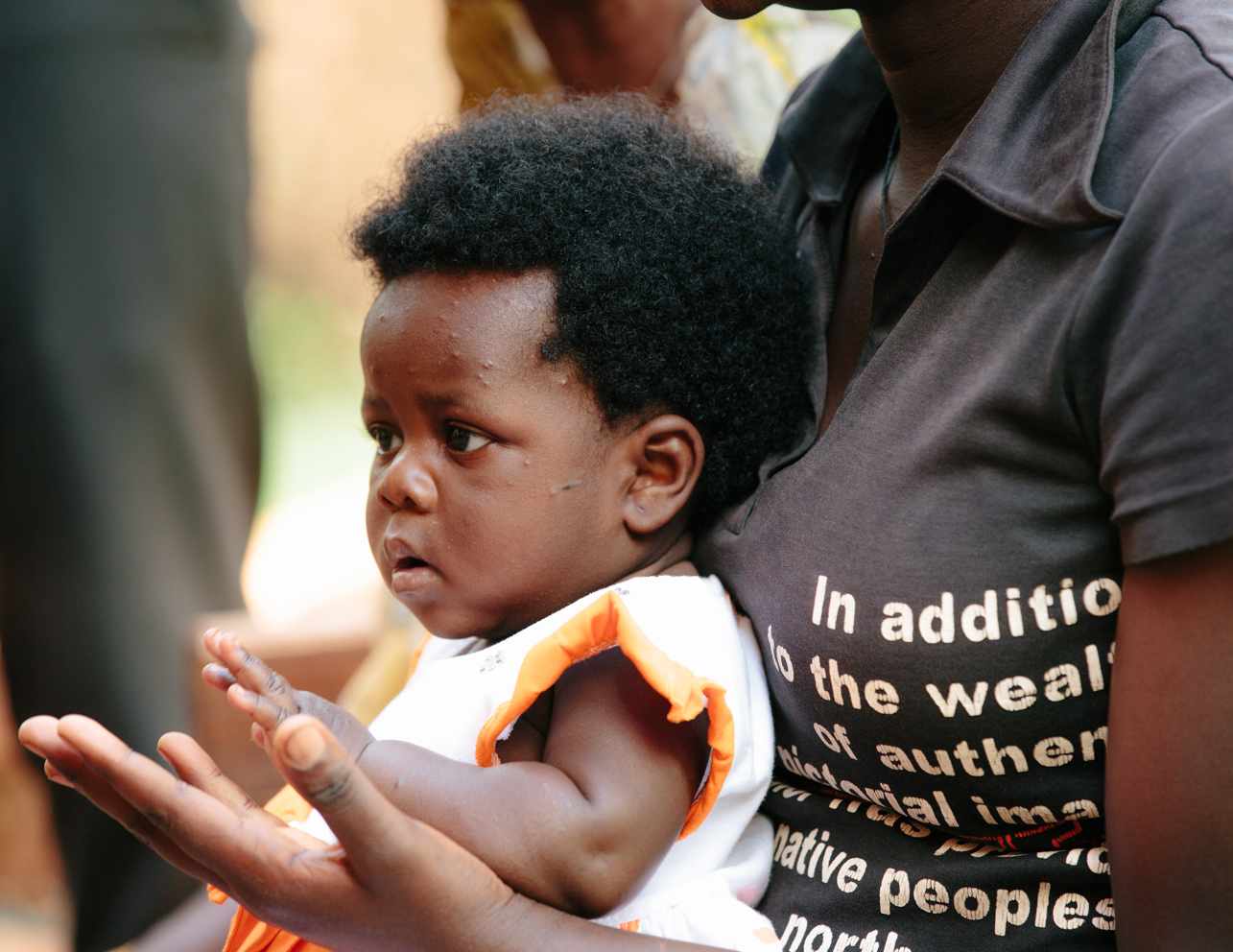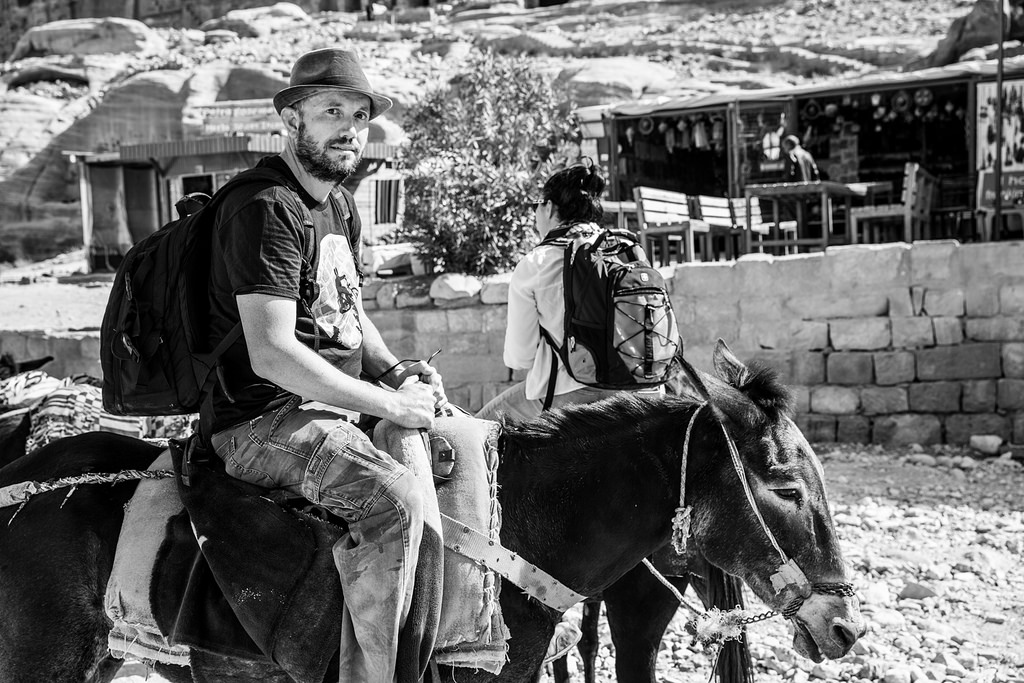
I’ve never seen so much green, various shades of green—evergreen, emerald green, Kelly green—green green. The hills, mountains, and valleys outside of Antigua, Guatemala are alive with the color green. Nature’s been kind to this country, enriching its soils with nutrients and gifting the land with a mostly springlike climate ideal for growing almost anything, coffee, flowers, corn, palm trees, pine trees, tropical plants, deciduous plants as well as fruits and vegetables. Even marijuana thrives amid this country’s lush ecosystem, so I’ve been told.
From the front seat of a World Vision passenger van, moving along quickly through winding, sometimes dizzying streets and roadways, I snap picture after picture of mostly hues of green. But photographs do not do the landscape justice. Guatemala’s beautiful and green life is difficult to shoot. My camera struggles to captures the layers upon layers of lush green fields against thick unkept hills against mountains thick and textured with green. The overcast skies don’t help, of course. This is the rainy season, which means, even when it’s not showering or pouring, wisps of swirling clouds move in and around the hills and mountains like ghostly spirits attempting to haunt paradise. That said, as lovely as the images depict the outskirts of Antigua, I assure you that in real life these landscapes are more brilliant, more awe inspiring, and more green than they appear in these pictures.
But underneath their green exteriors, the mountains, hills, and valleys whirling past my open window hold a secret: Guatemala’s green and lush countryside is not nearly as alive as it might seem.
Amid nature’s greens, hues of grays and browns appear out of nowhere. While the towns, villages, and communities that I see are sprinkled with vivid colors—this is Latin America after all—the bright and vivid reds, blues, and oranges are no match for the pale grays and browns. Along with the clouds, these muted shades seem to also haunt paradise.
We’ve taken this route at least three times since Monday. Up until today’s journey, our excursions out to World Vision’s ADPs have taken us past the small mountainside metropolisses. From afar, these pockets of person-made infrastructure appear to be a large collection of cardboard boxes that have been dropped against steep cliffs or thrown inside muddy canyons. From where I sat, zooming past them as fast the roads allow us to go, these communities appeared abandoned, empty of life… ghost towns. On the couple of occasions when the roads took us close enough to see the faces who live inside the cement boxes, I saw some of Guatemala’s poorest residents. Later, I learned that the majority of the people living in this region are distant descendants of one of Central America’s indigenous tribes.
Today we didn’t drive past these communities, we drove through them, up long and winding streets, over bumpy terrain, past houses that were rundown, void of running water, and sometimes looking more like dumping grounds than spaces that one could call home. I must admit that up close some of the houses looked more presentable than they appeared from afar, but most were far more scarred and dilapidated than I first assumed. And they were far less empty of people. The deeper into these communities we drove, the more broken-down our surroundings became, the less livable the environment appeared. These green mountains and hills were filled with secrets, stories about people and places that some people—richer, more powerful people—likely want to stay right where they are.
Several times while journeying up the mucky roads I thought, what on earth can Jesus do here…
We arrived at our destination, the location where two sisters, Dina and Monica, lived with their mom and dad. As I passed through the broken gate across a mudded pathway, I stepped over chicken crap and dog dung and walked past buildings and rooms that didn’t seem suitable (at least from this American’s perspective) for people to dwell. Chickens, some pristine and others plucked of all but a few feathers darted to and fro around my feet. Rain water from the hills and mountains rushed along the pathways, pouring into fly-infested puddles and pools, leaving very few places to walk without tramping through whatever it was that splashed around my pant legs. I walked by piles of junk, an outhouse, and something that was supposed to resemble a kitchen. Ducks waddled by. Dogs, ones that were considered pets and ones that were just otherwise, scurried around.
A four-year-old boy wearing pajama pants and a sweater ran barefoot past my legs. Standing shyly at the doorsteps to his home, he nibbled on crackers while he wiped snot off his face. I kneeled down, smiled and said hello. He just stared at me, wide eyed. God only knows what he was thinking. Maybe he was scared. Maybe he was just comfortable in his own skin. Maybe he was wishing I’d go away and take my snide thoughts with me. I wouldn’t have blamed him.
I confess, my Americanisms got the better of me today. My own circumstances and experiences started taking over my thoughts about what I was witnessing around me. I was tired, running on three-and-a-half hours of sleep. But that’s no excuse. My personal Jesusisms as well as a few of my own Jesus-isn’t-isms kept me distracted, uncertain about what I was supposed to be doing there and discouraged by how much poverty was dictating the lives of thousands of people who were cramped among these cinder-blocked boxes.
This mountainside needed healing. It needed running water, clean water that ran through pipes and spouted out of wells. It needed roads, new fences, and bleach. It needed a lot of things.
Once we were sitting on Dina and Monica’s front porch, Dina walked out of her bedroom holding a cello. Sitting on a plastic chair, she placed sheet music on a stool in front of her, smiled and when she put her bow against the cello’s strings, a melody began to fill the air.
It was a familiar melody, one that I’d heard my whole life, one that my Mammom would occasionally sing or hum while she washed dishes or baked pies. Dina was playing There’s Within My Heart A Melody.
There’s within my heart a melody
Jesus whispers sweet and low:
Fear not, I am with thee, peace, be still,
in all of life’s ebb and flow.
A member of the World Vision orchestra—a union of musicians whose members all come from Guatemala’s most impoverished districts—Dina’s melody, the one she played and the one that played within her soul, was ringing something true amid her suffering surroundings. Then, Monica joined Dina on the porch and together they showcased their talents, new talents, by playing a handful of hymns. But these tunes didn’t simply represent these women’s growing talents. For them it was much bigger than that. Music represented livelihood for Dina and Monica, a reality that was helping these two women—both former World Vision sponsorship children—to make livings teaching music to young students and putting them in front of some of Guatemala’s most important dignitaries and allowing them opportunities to perform at some of their country’s largest celebrations. But most of all, music was filling up the souls of these two sisters, giving them purpose and hope, challenging them to dream bigger about their futures and offering them tangible means toward bettering their lives.
“I woke up today with a purpose,” said Monica. “Not everybody can say that. But I can. Because of God, I can.”
Though the sisters’s renditions of the hymns were blemished with missteps here and there, the melodies they created were a most beautiful refrain, a theme that represented a growing anthem among the children, teenagers, and young adults among the slums of Guatemala’s central region: These impoverished green hills are coming alive with a sound of music.
It’s not just happening in the home of Dina and Monica. World Vision, in partnership with World Vision’s Child Sponsorship program, is using music to help to bring children and teenagers who were born into poverty a brand new hope as well as opportunities for a better future. Furthermore, the movement is resurrecting hearts and passions of some of the most impoverished children in Guatemala.
Twelve-year-old Angel started taking cello lessons two years ago. Today he’s playing Bach in the middle of his kitchen-dining-living room. According to Angel’s mother, Jesus lifted her son’s spirit because of music. “His soul… it is happier now.”
We visited four different homes today, spaces in various conditions, but spaces filled up with lives who are being impacted by World Vision’s music school on varying levels, from a brother and sister (William and Katerine, ages 5 and 7) who have become small virtuosos on the violin, a team of players whose tones and movements are perfectly in sync with the other. I asked their mother what differences she’d noticed since her children started taking lessons. “They’re more focused then many of the other children,” she said. “Their spirits are brighter, too.”
Poverty isn’t simply a condition that holds people hostage through physical means, an absence of basic elements in which to live. Poverty is also robs people (mommies and daddies and children) mentally, emotionally, and spiritually. Providing food, water, and education only helps to heal parts of these children’s beings. While healthy hygiene and nutrition is helping to bring these children’s bodies back to good health, it is the power of melodies—various melodies, from the tunes of hymns and songs of faith to classical masterpieces know to fill humanity’s spirits for generations—that are helping resurrect the slums from the inside out. The gift of music is helping to revive people’s passions and beliefs that their futures might be, could be different. Better. Fully of hope.
But World Vision needs our help. Music programming, from instruments to lessons to teachers, etc., while also helping to provide for the physical nourishment of communities, is a huge undertaking, but one that is a financially difficult. Right now, just more than 500 children living on the same hillside community where Dina, Monica, Angel, William, and Katerine live are hoping that you and I might choose to sponsor them through World Vision. Why? Because the slums they were born into rob their spirits of hope and joy and a passion to believe their tomorrow could be different.
And then I met Abner, joyful smile-filled talented Abner. After becoming sponsored and joining the music program, Abner realized that he had a gift for playing the violin. “He loves playing,” his mother told us. Which makes sense considering last year he won First Place at a national music competition. Full of pride and light, Abner played a delightful melody for us, grinning the entire time.
Guatemala’s mountains, hillsides, and valleys are green and certainly filled with life. But over the years, this countryside’s dark secrets have stolen that life away from the people who inhabit the green spaces. But music is bring it back. The slums aren’t so dark because a melody is ringing true. A new theme is playing, being played by Guatemala’s youth.
I was wrong about what Jesus was capable of doing in places such as these. The work of Christ just didn’t appear as I expected. But Jesus is indeed here, his spirit is being captured in the sounds of bows against strings.
Help us empower more kids. Help us bring these hills back to life. Help us fight poverty. Sponsor a child through World Vision. With your help, we can keep bringing colors to the grays and browns of these communities, radiant shades of soul, classical, gospel, jazz, and pop that are filling up these dark spaces and bringing the slums to life with music.
Viagra is for the treatment of inability to get or keep an erection and similar states when hard-on is of low quality. When you buy remedies like cialis from canada you should know about cialis online canada. It may have a lot of brands, but only one ATC Code. Erectile disfunction, defined as the persistent impossibility to maintain a satisfactory erection, affects an estimated 15 to 30 millions men in the America alone. Sexual heartiness is an substantial part of a man’s life, no problem his age etc.




